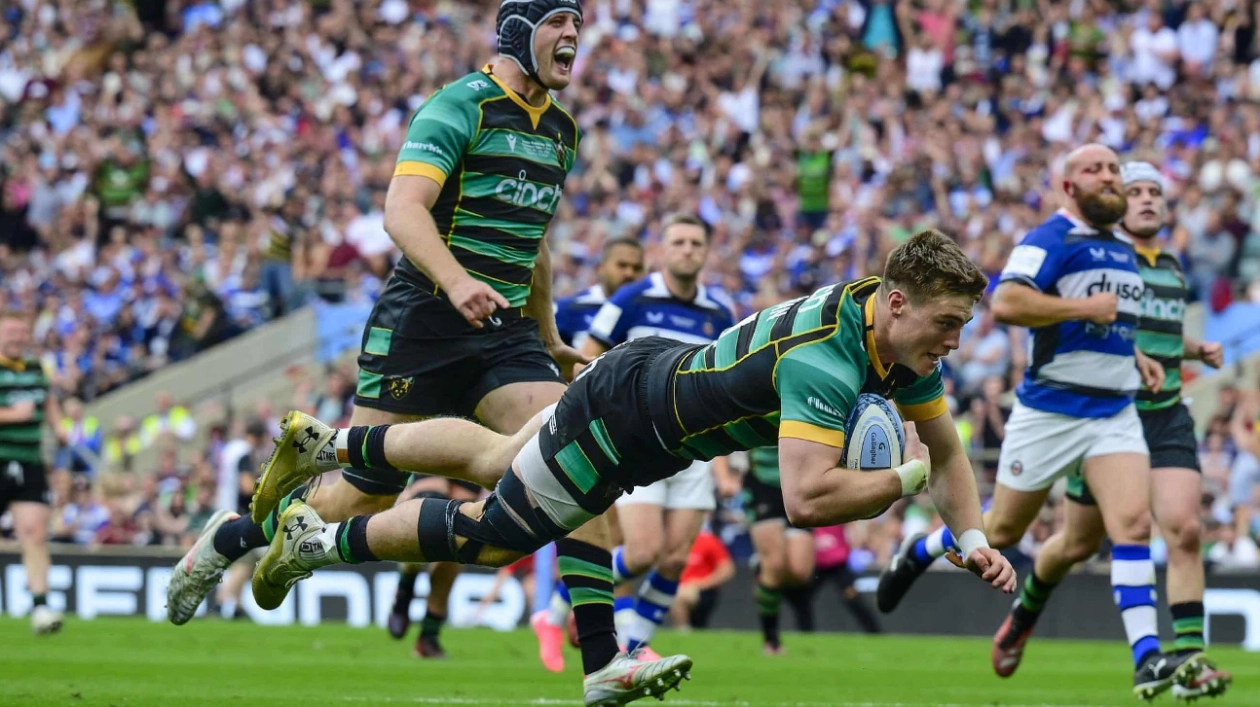Men's rugby union in the northern hemisphere is gearing up once again. On Friday, both the Premiership and the United Rugby Championship resume, with the former kicking off with a rematch of last season's final, where champions Northampton travel to Bath.
It's almost a given that these are turbulent, uncertain times for rugby, a sport that seems to be in a constant state of change. The dust has now settled on the abrupt financial collapse of three Premiership teams, and the rest of the rugby world is assessing the situation. Where will we stand when the final whistle blows on the third Lions Test in Sydney, just under 11 months from now?
Here are a few areas where answers may or may not emerge... We continue to tinker. Who knows why, given the number of thrilling matches. The community game worldwide has been experimenting with a lower legal tackle height, and the pressure is mounting to implement this in the elite game as well. The problem is, law trials are nearly impossible in elite rugby due to cross-border competition, so when one tournament changes, they all must follow suit. That moment is approaching fast.
The Premiership has never been the biggest cash cow—that title has always belonged to the Top 14—but until recently, it had an inflated sense of its own worth. The loss of three teams has necessitated a reckoning. A look at the player transfers reveals a significantly longer list of departures than arrivals for each club.
The Premiership finds some stability through an improved deal with the Rugby Football Union over the next eight seasons, but less certainty over how much they can utilize their key assets, the England players. The quality of the rugby remains astonishing. Financial security, however, remains as elusive as the top players themselves.
Rumors are rife that the English might be eyeing a British league. Notably, it was the United Rugby Championship that swiftly denied these rumors. Bolstered by the inclusion of the rising South African teams and an average attendance that is just 1,600 shy of the Premiership's, the younger competition is asserting its presence.
Change is also afoot here. TNT Sports will continue to broadcast the Premiership, although it is believed to be paying less for it, especially considering the loss of three clubs from the fixture list. The whole point of the Premiership selling a 27% stake of its central income to private equity firm CVC in 2018 was to engineer a significant boost in marketing and television revenue. So far, that hasn't materialized, leaving English clubs, many of whom spent the upfront payment from CVC to survive lockdown, in an even more precarious position.
TNT has abandoned the Champions Cup entirely, which has now been taken over by Premier Sports, who also broadcast the URC and Top 14. But TNT is picking up the Autumn Nations Series internationals, relieving Amazon Prime of that duty. There's a feeling that rugby union is biding its time with these deals until the Nations Championship kicks off in 2026. In the meantime, the traditional November window should offer some compelling matches.
This year's Rugby Championship is practically sealed by South Africa with two rounds left, although Argentina in second place (yes, ahead of the All Blacks) will host the Springboks on Saturday. Argentina's 67-27 victory over Australia in Santa Fe, achieved in dazzling style, is just the latest blow to the Wallabies.
Or the Whip-Round for Australia tour. Forget the loss of clubs; what happens when an actual union goes bankrupt? This tour is timely in that regard. Without it and the World Cup in 2027, there might be doubts about how long Rugby Australia can continue. But the Lions are another institution unsure of its place in the modern era, an amateur concept gradually being squeezed out by professionalism. And it's a player welfare issue.
After the dismal lockdown period in South Africa, the Lions need this tour to be a success. Will the Wallabies rise to the challenge? The long journey to that finale begins this Saturday against the All Blacks.






